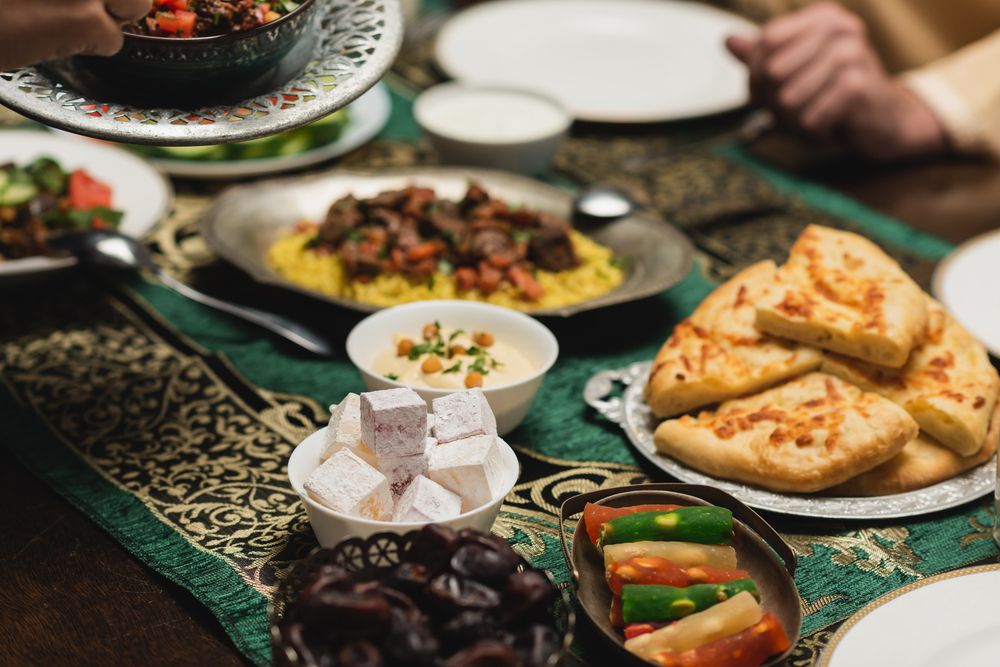Palouse faith communities cook up comfort food with a side of compassion
Commentary by Walter Hesford | FāVS News
On April 26, from 5-7 p.m., Family Promise of the Palouse will hold its annual Comfort Food Cookoff Fundraiser at Trinity Baptist Church, 711 Fairview Ave., Moscow, Idaho.

This is a chance for local faith communities that are involved in Family Promise’s mission to provide support for homeless families to show off their cooking skills and biases for a good cause.
At a coordinators meeting, we joked whether different faith communities had different concepts of what constituted comfort food. Will Catholics, for example, bring different dishes to the fundraiser than Unitarians? “We’ll bring something vegetarian,” said the Unitarian sitting to the left of me. Catholics in Moscow are famous for their sausages, but the coordinator for Pullman’s Sacred Heart sitting on my right didn’t commit himself.
And what about the two Emmanuels united by Family Promise’s mission? Would Emmanuel Baptist in Pullman, a Southern Baptist congregation, offer some Southern cuisine — fried chicken or grits, perhaps? Lutherans, still carrying on the food ways of our immigrant ancestors, might offer sauerkraut and pork (German), pickled herring (Swedish) or the infamous lutefisk (Norwegian).
Probably not. Judging by last year’s entries, the comfort food offered will likely be some popular American fare. Chilli variations were common, and both Latter-day Saints and Presbyterians baked beans.
What comfort Family Promise of the Palouse provides, not only to the homeless families it helps, but to all the faith communities that get to know each other by working together for the common good. All of us — from fundamentalists to secular humanists — get to share in the joy of service and to sup at each other’s tables.

Traditional comfort foods often seem to come from the tables of the poor, of immigrants remembering their homeland, of migrants sustaining themselves with what they could preserve. Preserving beef by salting it, corning it, for example, makes corned beef a favorite of the Jewish and Irish diaspora.
Comfort food may be cheap because it comes from what others may discard, like chicken feet. I was pleased to find chicken feet on the menu of a Chinese restaurant in Pullman, evidence of its down-home authenticity. (Not that I am likely to order it.)
Comfort food may be what pleases the palate of the young and is easy to make, midweek fare, like mac and cheese from the box. The Moscow Food Bank collects and distributes a huge number of mac and cheese boxes.
Religious observations provide unboxed comfort food. I can only imagine the comfort given by a simple sip of water after sunset by those observing Ramadan, and the communal comfort of the great feast of Eid.

Hebrew Scripture offers lots of comfort food, both literal and symbolic. Consider the lentil stew that Esau enjoyed at the cost of his birthright (Genesis 25:34), and the manna bestowed on the starving Israelites in the wilderness, as long as they shared it day by day (Exodus 16). The unleavened bread the Israelites ate in their haste as they escaped Egypt becomes the matza Jews eat in leisurely comfort as they celebrate Passover (Exodus 12:17-20).
Wholly symbolic is the comfort food Wisdom offers on her table in her seven-pillared house. “’You that are simple, turn in here!’,” she calls. “To those without sense she says, ‘Come, eat my bread and drink of the wine I have mixed. Lay aside immaturity, and live, and walk in the way of insight’” (Proverbs 9:1-6 NRSV).
In Christian Scripture, Jesus takes on the role of Wisdom, offering his body through bread and his blood through wine (Mark 14:22-240). Down through the ages, some Christians have interpreted this literally, some symbolically. In either case, comfort is received through communion.
During his ministry, Jesus was aware of the needs of people to have food that gave them sustenance and thus comfort. When his disciples were about to dismiss a crowd of folk without providing them food, Jesus tells his disciples to ask what the folk have, then gather and share it. This results in a plentitude of fish and bread, enough to feed everyone, with leftovers (Mark 6:35-44). This event is richly symbolic but also evinces Jesus’ concern that people have actual food when they are hungry.
When members of my church visit a fellow member in a Colfax care facility, we commune with him through bread and wine, affirming our comforting faith. But we also bring an apple fritter from Colfax’s Rosauer’s, mysteriously superior to and more comforting than other apple fritters.
What foods, literal and symbolic, give you comfort?
The views expressed in this opinion column are those of the author. They do not necessarily reflect the views of FāVS News. FāVS News values diverse perspectives and thoughtful analysis on matters of faith and spirituality.

发表回复